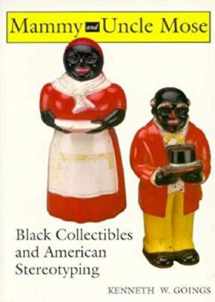
Mammy and Uncle Mose: Black Collectibles and American Stereotyping (Blacks in the Diaspora)
Book details
Summary
Description
Mammy and Uncle Mose examines the production and consumption of black collectibles and memorabilia from the 1880s to the late 1950s. Black collectibles - objects made in or with the image of a black person - were everyday items such as advertising cards, housewares (salt and pepper shakers, cookie jars, spoon rests, etc.), toys and games, postcards, souvenirs, and decorative knick-knacks. These objects were almost universally derogatory, with racially exaggerated features that helped ""prove"" that African Americans were ""different"" and ""inferior."" These items of material culture were props that helped reinforce the ""new"" racist ideology that began emerging after Reconstruction. Then, as the nation changed, the images created of black people by white people changed. From the 1880s to the 1930s, black people were portrayed as very dark, bug-eyed, nappy-headed, childlike, stupid, lazy, deferential - but happy! From the 1930s to the late 1950s, racial attitudes shifted again: African Americans, while still portrayed as happy servants, had ""brighter"" skin tones, and images of black women were slimmed down. By contextualizing ""black collectibles"" within America's complex social history, Kenneth W. Goings has opened a fascinating perspective on American history.


We would LOVE it if you could help us and other readers by reviewing the book
Book review



